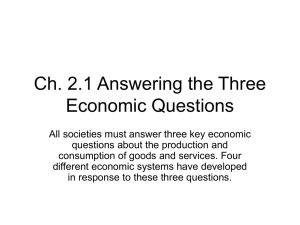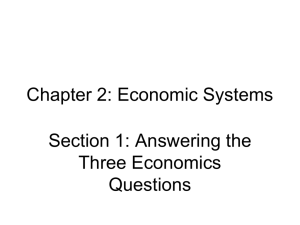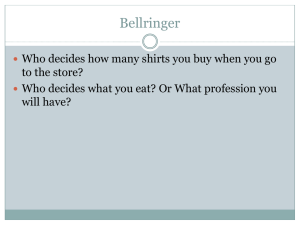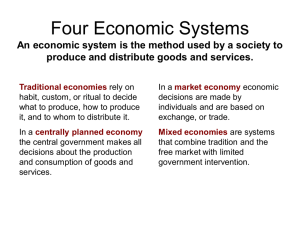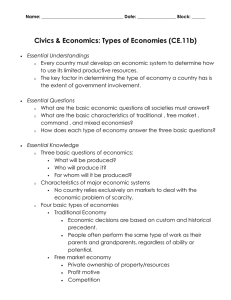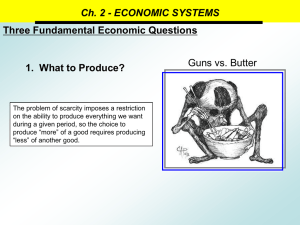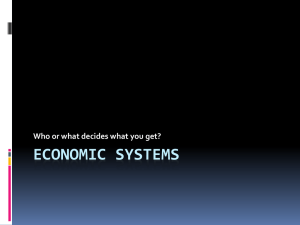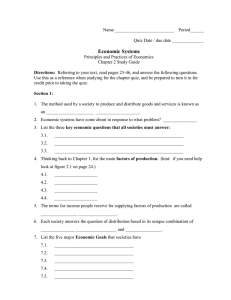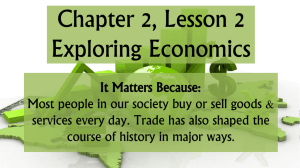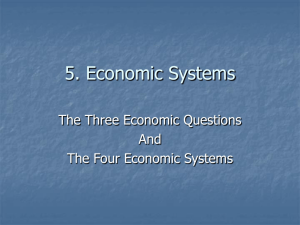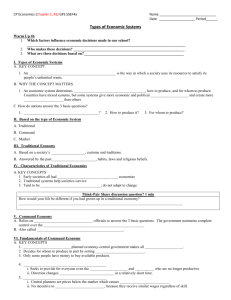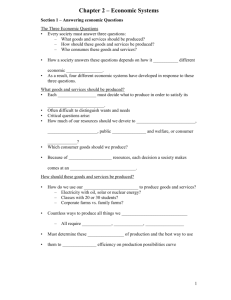Chapter 2 Section 1 economics
advertisement
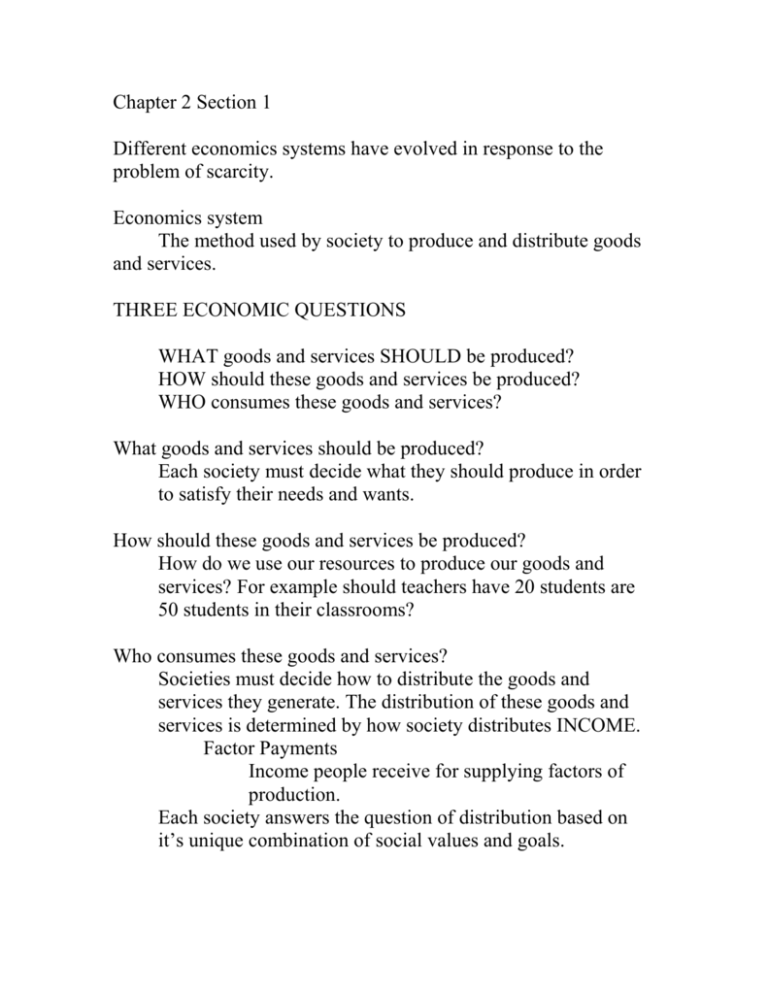
Chapter 2 Section 1 Different economics systems have evolved in response to the problem of scarcity. Economics system The method used by society to produce and distribute goods and services. THREE ECONOMIC QUESTIONS WHAT goods and services SHOULD be produced? HOW should these goods and services be produced? WHO consumes these goods and services? What goods and services should be produced? Each society must decide what they should produce in order to satisfy their needs and wants. How should these goods and services be produced? How do we use our resources to produce our goods and services? For example should teachers have 20 students are 50 students in their classrooms? Who consumes these goods and services? Societies must decide how to distribute the goods and services they generate. The distribution of these goods and services is determined by how society distributes INCOME. Factor Payments Income people receive for supplying factors of production. Each society answers the question of distribution based on it’s unique combination of social values and goals. Economic Goals Society pursues each of these goals, to some degree at the expense of others. Economic Goals Economic Efficiency Economic Freedom Definitions of Goals Making the most of resources Freedom from government intervention in the production and distribution of goods and services. Economic Assurance that goods and services will be Security and available, payments will be made on predictability time, and a safety net will protect individuals in time of economic disasters. Economic Equity Fair distribution of wealth. Economic growth Innovation leads to economic growth, and and innovation economic growth leads to higher standards of living. Other goals Societies pursue additional goals such as environmental protections. Four Economic Systems Traditional Economies Relies on habit, customs or rituals Revolves around the family Work tends to be divided along the gender lines Tend to stay relatively small and close Market Economies Decisions are made by individuals and are based on exchange or trade Are also called free markets or Capitalism Centrally Planned The Government alone decides how to answer all three key questions Also called Command Economies Mixed Economies Combination of Traditional Market and Centrally Planned economies
